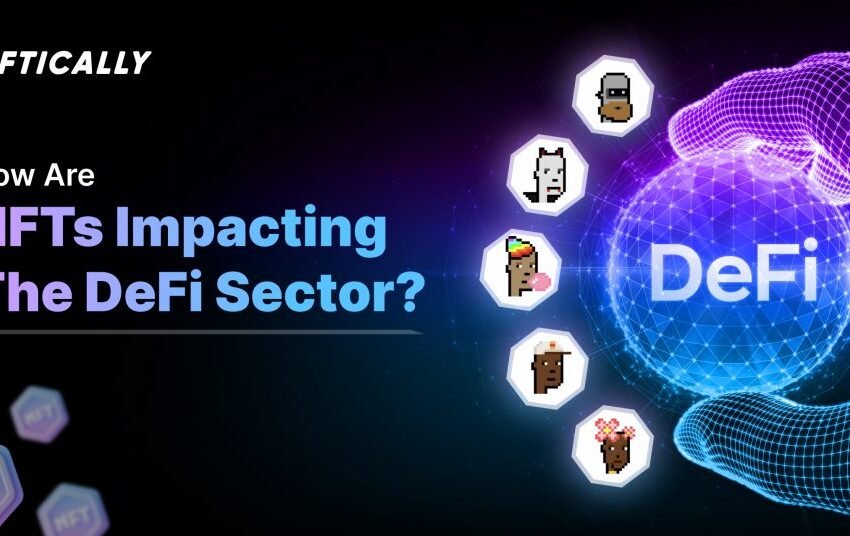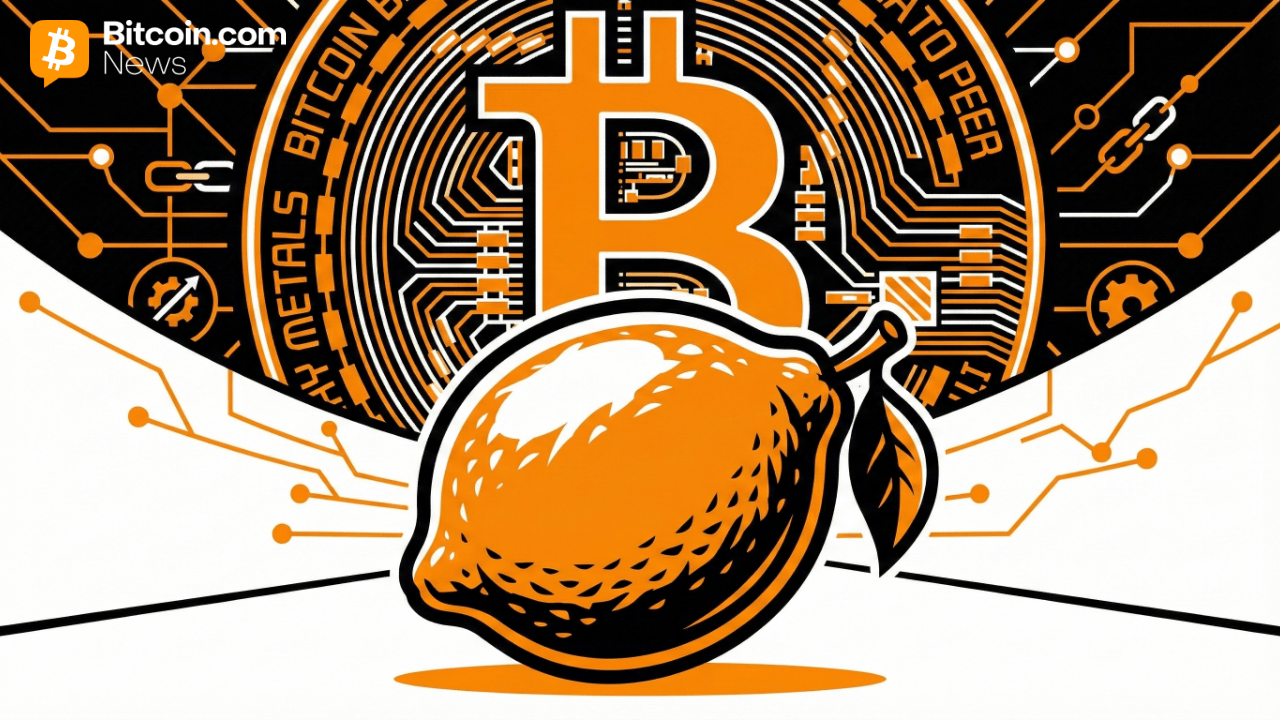Moonpay, M0, and Paypal Launch ‘PYUSDx’ to Power Application-Specific Stablecoins
How are NFTs impacting the DeFi Sector?
(Originally posted on : NFTICALLY )
Have you ever stopped to think about how the emergence of blockchain technology could revolutionize our lives? It’s truly remarkable to witness the impact it’s already having. Blockchain technology and its various applications have brought about significant transformations across multiple industries. Two particularly notable applications that have garnered immense attention are non-fungible tokens (NFTs) and decentralized finance (DeFi).
These unique digital tokens have not only captivated the blockchain world but have also captured the interest of the general public, especially in the realm of art and collectibles. However, NFTs are now poised to disrupt and innovate one of the oldest industries known to humankind: finance.
Let’s delve deeper into this innovative convergence and explore the fascinating world of NFT-based DeFi applications together.
What are NFTs?
Non-fungible tokens (NFTs) are a novel form of digital assets that enable individuals to claim ownership and transfer exclusive digital items. By utilizing blockchain technology, these tokens record all relevant information, ensuring their authenticity and permanence.
NFTs have the capacity to represent a wide range of items, including artwork, music, collectibles, game items, and even land titles. The growing popularity of NFTs stems from their potential as investment opportunities, the ability to establish digital ownership, and their scarcity.
What is DeFi?
Decentralized finance, or DeFi, represents a groundbreaking approach to handling financial services by leveraging blockchain technology. It operates through decentralized applications (dApps) and offers a diverse array of financial functionalities, including payments, lending, borrowing, saving, margin trading, yield aggregation, currency trading, and beyond. In contrast to conventional banking systems reliant on intermediaries like banks or financial institutions, DeFi eliminates the requirement for third-party involvement. This innovative system enables individuals with a stable internet connection to directly access and utilize these services, without relying on any centralized authority.
DeFi presents numerous advantages over traditional banking systems:
1. Enhanced Transparency and Immutability:
DeFi leverages the blockchain ledger, ensuring that all transaction details are recorded and publicly accessible. This transparent nature fosters trust and enables participants to verify and track transactions. Moreover, the immutability of blockchain records ensures that once a transaction is recorded, it cannot be altered or tampered with.
2. Elimination of Time Delays:
Unlike centralized authorities that often introduce time delays in processing transactions, DeFi allows for instant access to a wide range of financial services. This means that users can swiftly engage in activities such as lending, borrowing, or trading without the need for intermediaries, reducing waiting times and enabling faster financial decision-making.
3. Universal Accessibility:
DeFi solutions are accessible from anywhere, provided individuals have an internet connection. Geographical location is no longer a barrier, enabling individuals from all around the world to utilize DeFi services and access the benefits of decentralized finance.
4. Interoperability and Customizability:
DeFi solutions are designed to be highly interoperable, allowing for seamless integration with various platforms and applications. Users have the flexibility to tailor DeFi services according to their specific requirements. Additionally, DeFi platforms enable the integration of third-party applications when necessary, further enhancing customization and expanding functionality to meet diverse needs.
What Impacts NFTs Are Having in the DeFi sector?
Non-fungible tokens (NFTs) play a crucial role in DeFi projects, offering a myriad of benefits. They bring secure proof of ownership, expedite transactions, and fortify security measures. By employing NFT-based smart contracts, transactions can be automated while maintaining transparency. NFTs grant users precise control over their digital assets, empowering them to dictate transfer rules.
These tokens open up avenues for generating revenue through decentralized exchanges, where NFTs representing various assets can be traded, bypassing traditional financial intermediaries. NFTs enrich the DeFi landscape with their ability to enhance ownership, efficiency, security, and financial opportunities. Let us discuss the major impacts of non-fungible tokens in the DeFi sector.
Loan Collateralization with NFTs:
NFTs serve as unique digital assets, making them ideal collateral for loans. This helps reduce risk for lenders, and loan terms can be customized to meet the needs of both parties. Platforms like Arcade enable P2P lending and borrowing using NFTs as collateral, offering adjustable interest rates and loan-to-value ratios. Borrowers can specify loan parameters, allowing lenders to make informed decisions.
Debt Management with NFTs:
NFTs used as collateral simplify debt management by automatically transferring ownership to lenders in case of default, eliminating the need for legal action. Transactions involving NFT collateral are secure and transparent, recorded on the blockchain for lenders to monitor repayment status. Predefined conditions set in NFT smart contracts protect both borrowers and lenders from unexpected surprises.
Insurance with NFTs:
NFTs can represent digital insurance policies, providing easy verification and ownership transfer without tedious paperwork. CoverCompared leverages NFTs and DeFi to revolutionize the insurance sector, offering secure access to various insurance policies. NFT-based derivative contracts enable risk hedging and smart reinsurance systems that adjust premiums based on market conditions. Storing policyholder data on public ledgers improves transparency and safeguards against fraud.
Improved Visibility and Security:
Using NFTs for insurance policies ensures no expiry dates or frequent renewals. It also enhances visibility by storing policyholder information, payment history, and coverage details on public ledgers. This promotes transparency within the insurance industry and bolsters security against fraudulent activities.
Governance with NFTs:
NFTs play a crucial role in DeFi governance by offering permanent voting rights to specific users or wallets. Soulbound tokens (SBTs) are non-transferable NFTs that remain in designated wallets. These tokens enable the inclusion of permanent members or councils in the decision-making process of DeFi projects. SBT holders have voting rights on important matters such as fund allocation, asset management, and strategic planning, acting as advisors and enhancing organizational governance. NFTs can also provide additional benefits like exclusive content access and discounts, fostering user attraction and loyalty.
NFT Staking:
NFT holders can stake their tokens in dedicated pools and earn rewards, similar to DeFi yield farming. Staking allows owners to generate passive income and potentially increase the value of their assets while retaining ownership. To stake an NFT, users sign up for a platform, deposit their tokens into a liquidity pool, and set parameters like stake amount and duration. By staking NFTs in DeFi pools, users can earn rewards based on their participation. However, it is essential for potential investors to conduct thorough research before engaging in NFT staking or any other cryptocurrency-related investment products or services.
Conclusion
The integration of non-fungible tokens (NFTs) with DeFi protocols has sparked a wave of innovative financial services for users. These services encompass a wide range of offerings, including loans, liquidity provision, and insurance. Furthermore, NFTs can be utilized for staking rewards, governance voting, and participation in decentralized lending and borrowing platforms. This merging of virtual tokens and DeFi protocols creates a fertile ground for the development of NFT-based DeFi applications, opening up exciting possibilities and unleashing tremendous potential.
In this context, platforms like NFTICALLY play a vital role in driving the widespread adoption of these unique digital tokens. NFTICALLY offers a seamless solution for launching NFT marketplaces, eliminating the need for technical expertise and making it easier for individuals to participate in the NFT economy. By providing accessible tools and infrastructure, platforms like NFTICALLY contribute to the expansion and accessibility of the NFT ecosystem, enabling more users to engage with and benefit from NFT-based DeFi applications.








 Bitcoin
Bitcoin  Ethereum
Ethereum  Tether
Tether  XRP
XRP  USDC
USDC  Solana
Solana  TRON
TRON  Figure Heloc
Figure Heloc  Lido Staked Ether
Lido Staked Ether  Dogecoin
Dogecoin  WhiteBIT Coin
WhiteBIT Coin  Cardano
Cardano  USDS
USDS  Bitcoin Cash
Bitcoin Cash  LEO Token
LEO Token  Wrapped stETH
Wrapped stETH  Hyperliquid
Hyperliquid  Monero
Monero  Wrapped Bitcoin
Wrapped Bitcoin  Chainlink
Chainlink  Binance Bridged USDT (BNB Smart Chain)
Binance Bridged USDT (BNB Smart Chain)  Canton
Canton  Ethena USDe
Ethena USDe  Stellar
Stellar  USD1
USD1  Wrapped eETH
Wrapped eETH  Rain
Rain  Hedera
Hedera  sUSDS
sUSDS  PayPal USD
PayPal USD  Dai
Dai  Litecoin
Litecoin  Coinbase Wrapped BTC
Coinbase Wrapped BTC  Avalanche
Avalanche  Zcash
Zcash  Sui
Sui  WETH
WETH  Shiba Inu
Shiba Inu  Cronos
Cronos  World Liberty Financial
World Liberty Financial  USDT0
USDT0  Toncoin
Toncoin  Tether Gold
Tether Gold  Polkadot
Polkadot  MemeCore
MemeCore  PAX Gold
PAX Gold  Uniswap
Uniswap  Mantle
Mantle  Ethena Staked USDe
Ethena Staked USDe  BlackRock USD Institutional Digital Liquidity Fund
BlackRock USD Institutional Digital Liquidity Fund  Circle USYC
Circle USYC  Global Dollar
Global Dollar  Aster
Aster  Aave
Aave  Falcon USD
Falcon USD  Bittensor
Bittensor  OKB
OKB  Pi Network
Pi Network  Sky
Sky  NEAR Protocol
NEAR Protocol  syrupUSDC
syrupUSDC  Bitget Token
Bitget Token  Pepe
Pepe  Ripple USD
Ripple USD  HTX DAO
HTX DAO  Ethereum Classic
Ethereum Classic  BFUSD
BFUSD  Internet Computer
Internet Computer  Ondo
Ondo  Superstate Short Duration U.S. Government Securities Fund (USTB)
Superstate Short Duration U.S. Government Securities Fund (USTB)  Pump.fun
Pump.fun  POL (ex-MATIC)
POL (ex-MATIC)  Gate
Gate  Worldcoin
Worldcoin  KuCoin
KuCoin  Midnight
Midnight  Jupiter Perpetuals Liquidity Provider Token
Jupiter Perpetuals Liquidity Provider Token  Cosmos Hub
Cosmos Hub  Ethena
Ethena  Jito Staked SOL
Jito Staked SOL  NEXO
NEXO  USDtb
USDtb  Official Trump
Official Trump  Binance-Peg WETH
Binance-Peg WETH  Rocket Pool ETH
Rocket Pool ETH  Spiko EU T-Bills Money Market Fund
Spiko EU T-Bills Money Market Fund  Algorand
Algorand  Binance Bridged USDC (BNB Smart Chain)
Binance Bridged USDC (BNB Smart Chain)  OUSG
OUSG  Aptos
Aptos  Wrapped BNB
Wrapped BNB  Filecoin
Filecoin  Function FBTC
Function FBTC